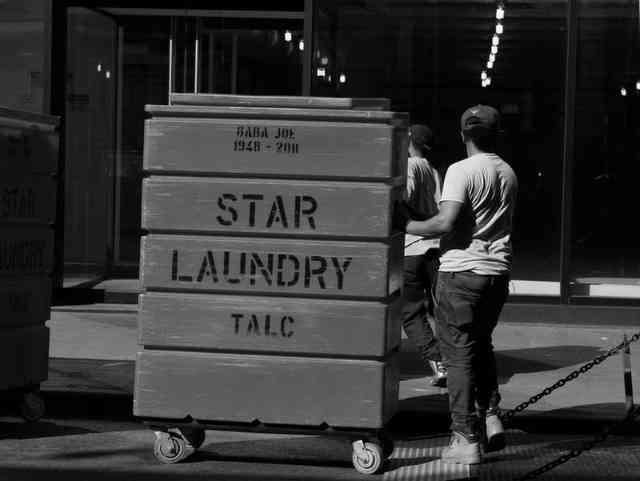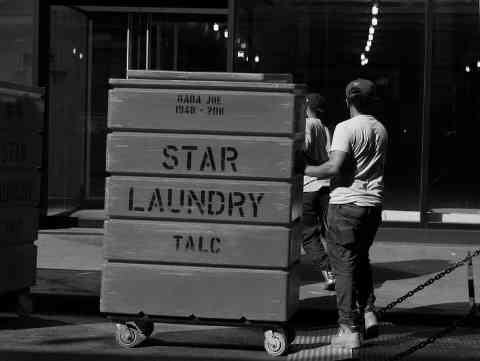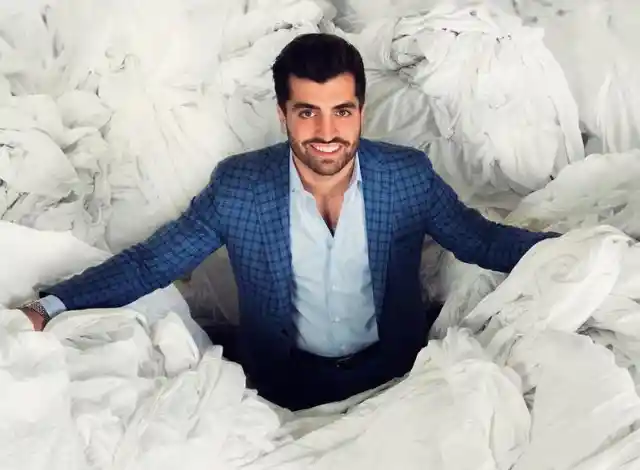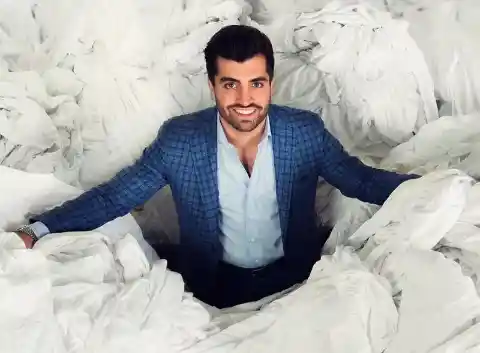Back in 2011, Yaakoub Hijazi was studying at Montclair State University. The 19-year old, now 27, left his studies when his father, Youssef, died of lung cancer that same year. When he arrived home he discovered that his father's business, Star Laundry, was on the verge of bankruptcy.


He knew that this would tarnish his father's name and immediately decided to quit college and take over.
Over the next few years, Hijazi focused on building the business, protecting the legacy his father had built but also increasing and expanding the business. This year he reached the Under 30s Manufacturing and Industry list in Forbes.
The business, Star Laundry, now cleans sheets and towels for 100 of the 800 New York-based hotels; Clients include Conrad New York and the Westin Times Square.
Around 40% of the laundry from New York hotels goes through the business, bringing the company around $70million annually.
The Secret of “Star Laundry Baba Joe 1948–2011”
Laundry is a highly competitive business. In New York, for example, prices are around 30-45 cents per pound of linen. Companies often cut prices dramatically in order to gain a good share of the market, driving competitors out of business, before raising the price once more.


In 2017 Prestige Industries, the main competitor for Star Laundry went bankrupt. The assets were sold to a private equity firm that happens to own PureTex solutions – another laundry company.
The problem is that more companies are fighting for the business of the same number of hotels and with some cutting prices as low as 28 cents/pound competition is tough.
Hijazi, who owns 100% of Star Laundry, decided to focus on quality. Customers were attracted by the fact that he is personally available from 3.30 am. He does not employ salesmen and focuses on keeping the rate within the mid to upper price range.
Hijazi invested in some new giant tunnel washers which can cope with 135-pound loads. The machines cut through dirt with high temperatures, water hits around 180 degrees, and they use hydrogen peroxide and other chemicals to make sure the linens are washed to a high standard.
The loads, which arrive from the hotels in bins of 800 pounds are labeled for his father “Star Laundry Baba Joe 1948–2011” and the separate compartments and coding system means that multiple hotels can have their linen washed at the same time.
The plant, in Paterson, New Jersey is star Laundry's HQ and is located just 20 minutes away from the neighborhood in Montclair Heights where Hijazi grew up.
Choosing Quality Over Quantity
Despite his success, he never wanted to work in the business. In fact, his father who had arrived from Lebanon at just 17 years of age, had shown no indication of wanting him involved.


When he first arrived his father had set up Star Deli and other restaurants before moving over to laundry. He moved out to New Jersey from Brooklyn to take advantage of the lower labor costs and less strict union rules.
When his father passed away and Hijazi took over the company, he was in for a shock: the company was in dire financial straits, facing tax liens, sewer liens and large fines from the federal Occupational Safety and Health Administration to deal with.
At 19, it was difficult to get anyone to listen to him and take him seriously. Despite this, he managed to pay everything off by taking out a loan for $300,000.
He closed down the less profitable dry cleaning side of the business and employed a qualified OSHA consultant to work on the health and safety issues.
He decided to use his youth to sell his business to the local hotels and by 2012 had signed on the DoubleTree on Lexington and then worked his way into the other hotels including Westin Times Square.
He worked on the principle that hotels wanted good quality services which they weren’t getting by buying in cheap laundry companies. This paid off.
Hijazi was selective about the hotels he handled. He focused on the high-end luxury hotels located around Manhattan where occupancy was always high and consistent.
This reduced pressure when it came to pricing and enabled him to focus on logistics to maximize efficiency for collections and deliveries.
Hijazi is currently in talks with buyers and is looking to sell Star Laundry. The business involves long hours and hard work but is said to be worth around $150 million.
Hijazi is conflicted about the sale; on the one hand, the long hours are starting to take a toll, on the other, he is selling the business his father created.